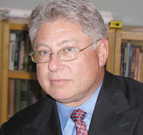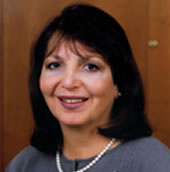Guest Bloggers
Dr. Joshua Gordon at AspenBrainLab on the Future of Depression Treatment,
July 28, 2015
We’re pleased to inform you that HDRF Depression Task Force member Dr. Joshua Gordon of Columbia University spoke this Saturday at the Third Annual AspenBrainLab in Aspen, Colorado.
Dr. Gordon told an audience of 400 at the Aspen Institute’s Paepcke Auditorium about how the promising research of the HDRF Depression Task Force can change the way we view, diagnose and treat depression.
“What I’m really excited about is … the explosion of tools that enable us to manipulate and monitor brain activity,” he told Aspen Public Radio before the event.
“In the next five or ten years we won’t just give a drug to the entire brain,” he continued. “We’re going to be able to target a treatment – whether it be drug, stimulation or psychotherapy – at particular neural circuits.”
The AspenBrainLab is a day-long symposium that convenes scientists and other experts from around the world to shed light on a range of brain-related topics for a general audience.
Click here to listen to an interview with Dr. Gordon regarding the event on Aspen Public Radio.
Mayberg in Scientific American,
January 23, 2015
The new, February issue of Scientific American features a brilliant article co-authored by our Depression Task Force member, Dr. Helen Mayberg, a neurologist and Professor of Psychiatry at Emory University.
“Treating Depression at the Source” outlines Dr. Mayberg’s pioneering work in Deep Brain Stimulation — a novel treatment for severe depression that involves implanting electrodes in the middle of the brain.
Click here to read the full article…
2014 Research Round-Up,
January 7, 2015
With your help, our acclaimed Depression Task Force of neuroscientists has been working relentlessly to discover what is at the very core of depression. The fact that they are collaborating and sharing information via the HDRF Data Center is one of the reasons they are achieving results with their HDRF-funded research grants.
Their research broke new ground in 2014, opening up pathways to find new and better anti-depressants in the year ahead.
Click here to read the full article…




